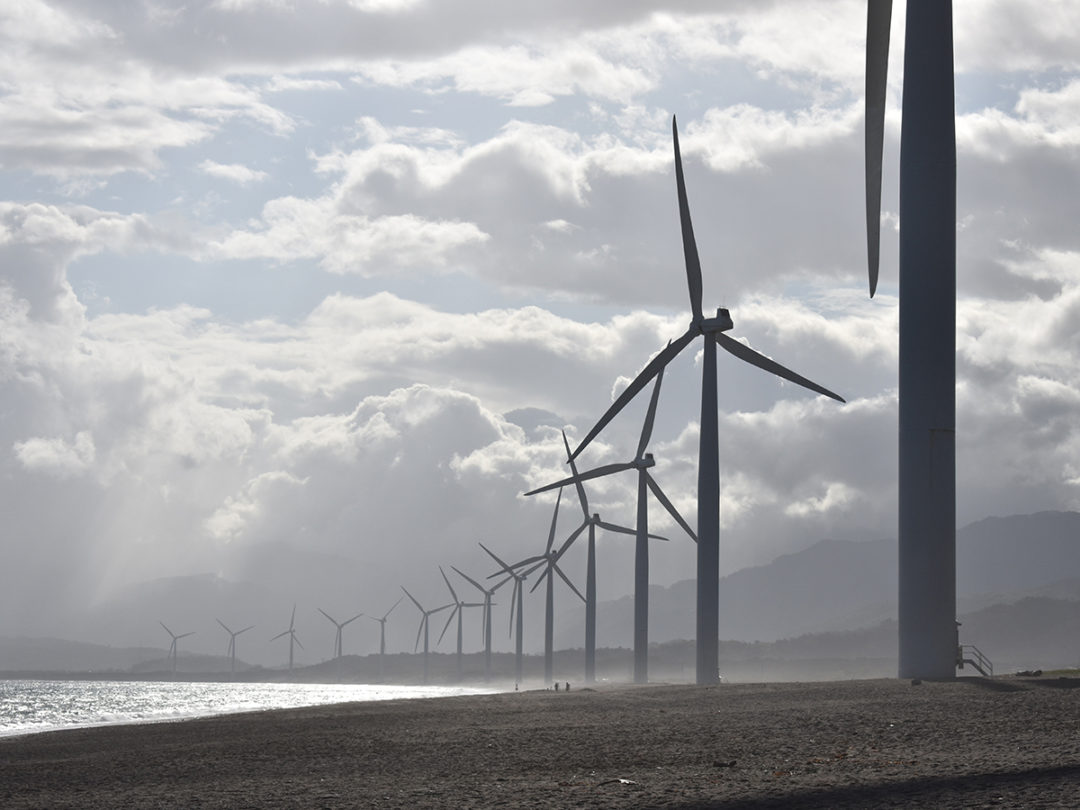
Home » Apple’s Climate Promise Depends on Taiwan Partners Going Green
Apple’s Climate Promise Depends on Taiwan Partners Going Green

August 12, 2020
Apple Inc. has gone carbon neutral. But in order to say the same for its flagship iPhone, it’s going to need help from Taiwan.
More than three-quarters of the emissions that come from making Apple’s ubiquitous products come from outside suppliers, according to the company’s Environmental Progress Report. That includes Taiwanese electronics giants like TSMC and Foxconn, which still get about 90% of their power from non-renewable sources, according to company reports.
That’s changing though. The firms are installing solar panels and buying power from offshore wind farms in line with Apple’s target of having all of its products be carbon-neutral by 2030. It underscores how climate pressure is increasingly coming not only from activists, but from within company’s own supply chains.
“What Apple and other companies are trying to do is contribute to meeting Paris climate targets by decarbonizing their own footprints and making it a precondition for their partners and suppliers to use renewable energy,” said Prakash Sharma, director for the energy transition practice at consultancy Wood Mackenzie Ltd. “It’s gaining momentum because more and more companies are moving in that direction.”
So far 71 of Apple’s hundreds of suppliers have committed to using only renewable energy, about 8 gigawatts worth, or more than the peak power demand for the entire nation of Singapore. Once completed, these commitments will avoid over 14.3 million metric tons of greenhouse gases annually — the equivalent of taking more than 3 million cars off the road each year.
Taiwanese companies make up an outsize proportion of Apple’s suppliers worldwide because of their dominance of sectors such as contract manufacturing and made-to-order semiconductors. Linchpins of Apple’s manufacturing machine include Taiwan Semiconductor Manufacturing Co., which exclusively makes cutting-edge chips for Apple’s iPhones and iPads in Taiwan, and Hon Hai Precision Industry Co., also known as Foxconn, which assembles more than 100 million iPhones annually. Both firms recently agreed to join the renewable energy drive.
Wind and solar power can be as cheap as fossil fuels, but they don’t produce at all hours of the day, so it isn’t feasible for major factories to run directly on renewables alone. Improvements in battery technology might soon change that, but at the moment Apple isn’t pushing its suppliers in that direction.
Instead, Apple wants them to invest in enough renewable energy in their home region to cover their power use. That way even if a factory requires coal-fired electricity in the middle of the night, it will have invested in enough wind or solar to keep an equivalent amount of coal from being burned at other times.
For Foxconn, that means installing solar panels on the roofs and of its campuses in places like Henan province in China, where coal is still the dominant source for power. The company had installed 224 megawatts of clean energy by the end of 2019, up from 33 in 2017. But it still has a long way to go, as solar power and renewable energy credits amounted to only about 10% of its power use last year, the company said in its sustainability report.
TSMC, which used renewable energy and credits for 6.7% of its power in 2019, has committed to producing renewable energy for its entire operations by 2050. It signed a deal last month with Orsted A/S to buy all of the power from a 920-megawatt wind farm the Danish company is developing off the coast of Taiwan, in what is the world’s largest private renewable power deal. The deal means TSMC now actually has agreements to buy more clean energy than Apple, according to BloombergNEF.
The company’s efforts have been aided by a massive Taiwanese government plan to transform the country’s energy mix away from coal and nuclear and toward renewables and natural gas. The Orsted deal, for example, came after the wind-maker had established a major presence in the company thanks to several government-backed deals for offshore wind farms.
“Growing sustainability initiatives by major companies are definitely making a dent in their supply chains,” said Jonathan Luan, a Beijing-based analyst with BloombergNEF. “Some companies have been able to change market rules to achieve their goals, like in Taiwan.”
RELATED CONTENT
RELATED VIDEOS
KEYWORDS Asia Pacific Business Strategy Alignment Chemicals & Energy High-Tech/Electronics Sourcing/Procurement/SRM Sustainability & Corporate Social Responsibility
Subscribe to our Daily Newsletter!
Timely, incisive articles delivered directly to your inbox.
Popular Stories

2024 Supply Chain Management Resource Guide: There's Only One Way Off a Burning Platform
VIEW THE LATEST ISSUECase Studies
-
Recycled Tagging Fasteners: Small Changes Make a Big Impact
-

Enhancing High-Value Electronics Shipment Security with Tive's Real-Time Tracking
-

Moving Robots Site-to-Site
-
JLL Finds Perfect Warehouse Location, Leading to $15M Grant for Startup
-
Robots Speed Fulfillment to Help Apparel Company Scale for Growth



